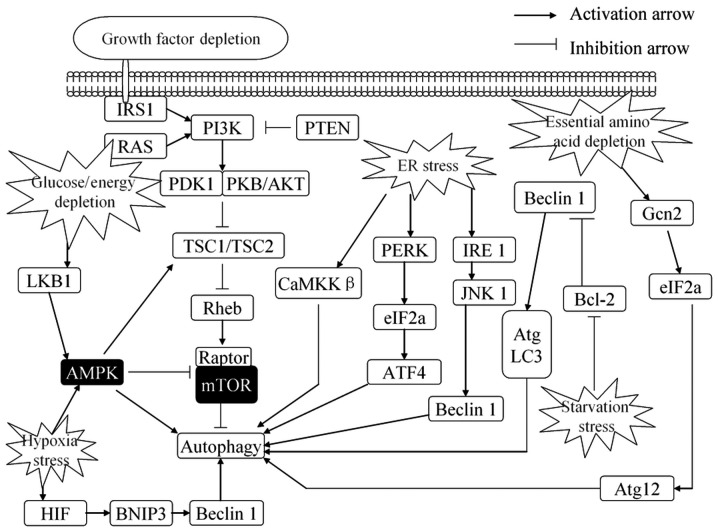Figure 2.
Regulation of autophagy in response to stress. Autophagy is activated in response to multiple stresses during cancer progression, including nutrient deprivation, ER stress, hypoxia, glucose/energy depletion and other diverse stresses. ER stress stimulates autophagy through the PERK-eIF2α pathway, IRE1-JNK1 pathway and Ca2+ release. Growth factors, through AKT-dependent and ERK-dependent phosphorylation, suppress autophagy. Depletion of nutrients or energy (amino acids, glucose, energy or serum) induces autophagy by activating the AMPK pathway or promoting upregulate transcription of certain autophagy genes. Autophagy is also induced by hypoxia that signals via AMPK to inhibit mTOR activity or disrupt the Bcl-2-Beclin 1 interaction and activate Beclin 1. Conversely, autophagy is inhibited by increased growth factor signaling through the activation of the Class I group of PI3-kinases and Akt to promote mTOR activity. ER, endoplasmic reticulum; ERK, extracellular signal-regulated kinase; AMPK, AMP-responsive protein kinase; ATF4, activating transcription factor 4; mTOR, mammalian target of rapamycin; BNIP3, Bcl-2/adenovirus E1B 19 kDa-interacting protein; ATG, autophagy regulator.

